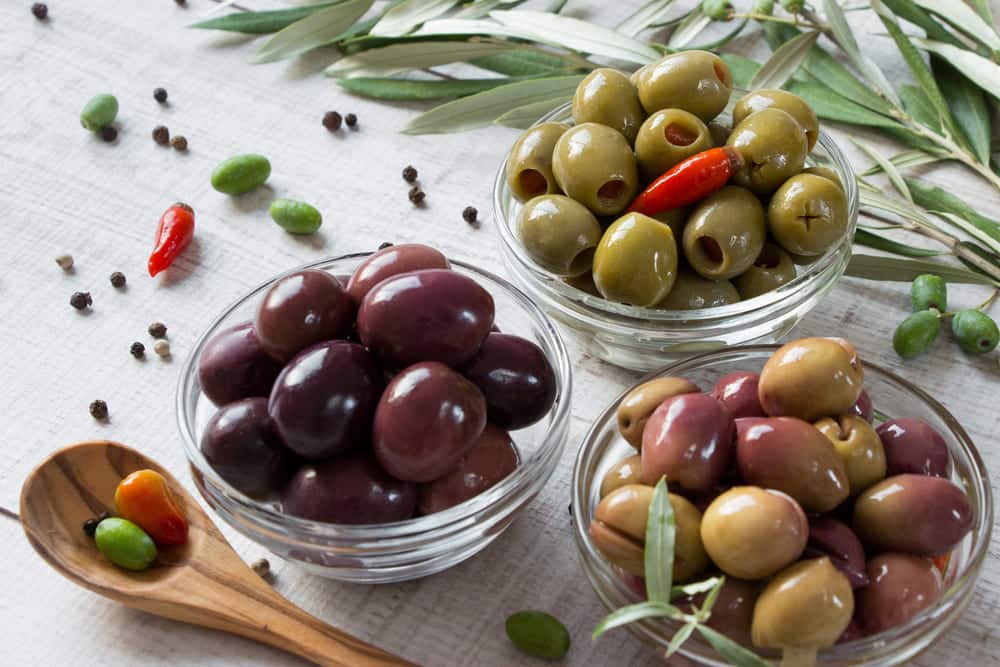
Olive is a wonder that I am truly grateful for. The versatility and its diverse uses make olives a star in the kitchen world. Olive adds a fresh and bright flavor to every dish. The beautiful complex of all flavors like sour, sweet, bitter, and salty. These make an amazing blend when added to sauces, stews, salads, or any drink. If you want to try something different than the olives, then go for the olive substitutes we have discussed in our list.
There are more than a hundred varieties of olives, each has its distinct characteristics. The most commonly used ones in the kitchen are black and green olives. Storing un-open olives is easier, but open olives need to be refrigerated. Olive oil comes from pressing fresh olives. It has an amazing taste and is used for cooking worldwide. You can use it for frying and sauteing or sprinkling on salads and pasta. This healthy oil is an important ingredient in Mediterranean cuisine.
We could not stay behind not mentioning the health benefits. Olives are rich in Vitamin E, iron, and other minerals. Olive oil contains fatty acids that help lower cholesterol and blood pressure. Furthermore, it has antioxidant properties.
Olive Substitutes
1) Capers
As an olive substitute, capers are number one on our list. These are grown in Asia and the Mediterranean area. The tangy flavor similar to green olives is achieved through a process. The unripe bud is first dried in the sun and then pickled in vinegar, salt, and brine.
If you allow a caper to grow, it will turn into a caperberry that is bigger just like an olive. It is used in Italian dishes like pasta puttanesca and chicken piccata. They are used in Spanish tapas as well as pickled in some parts of the world. Owing to the strong flavor, capers must be used in a balance. Capers have health benefits when it comes to diabetics.
2) Artichoke hearts
No, not the whole plant. Artichoke does not seem like a welcoming vegetable. However, artichoke hearts can prove to be a great olive substitute. Sure, it requires some preparation, but the results are worth it. Artichoke hearts are edible and have a bitter, earthy, and meaty flavor.
This unique flavor is complimented by adding some salt and acidity by either vinegar or any available means. The jarred artichokes can be eaten right when you open up. However, the canned ones are to be used in dishes that need preparation. The health benefits include a high amount of fiber, vitamin K, and folate.
3) Sundried tomatoes
As the name suggests, tomatoes are dried in the sun. The flavor profile is sweet and tarty. You can add them to pasta, salads, and other dishes. When added in salads in place of olives, sundried tomatoes add a nice flavor. Make sure to add it in moderate quantities as the tomato flavor is pretty intense.
Before you use them, sundried tomatoes need to be hydrated. These little packages of nutrients are a great way to take in some nutrients and antioxidants. This is not an ideal substitute, but you can try it if you want some unique taste.
4) Mushrooms with vinegar
Are you a fan of mushrooms? If you want to substitute olives in a salad or a dressing, use mushrooms with some vinegar. The unique earthy and meaty flavor of the mushroom will go well with the acidity offered by vinegar. Although you would need a couple of ingredients, you can easily replicate the flavor of these two items.
5) Various oils
In case you are looking for olive oil substitutes, there are many. Try using sunflower oil for general cooking. Peanut oil is a great choice where you need olive oil for baking. Other options are coconut oil, avocado oil, and canola oil. A nutty flavorful oil is walnut oil that adds a rich flavor to any salad.
Olives are a versatile ingredient in a kitchen and hard to replace. However, some other elements can replicate the taste and flavor they offer. Capers are your closest call as they offer a similar look and taste profile. Furthermore, you can try your luck with artichoke hearts, mushrooms with some vinegar, and sundried tomatoes.